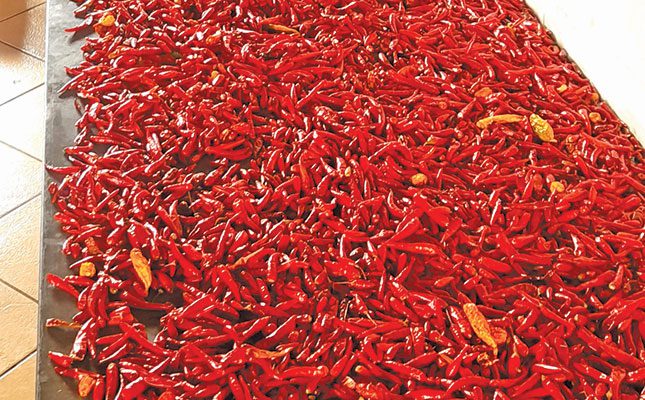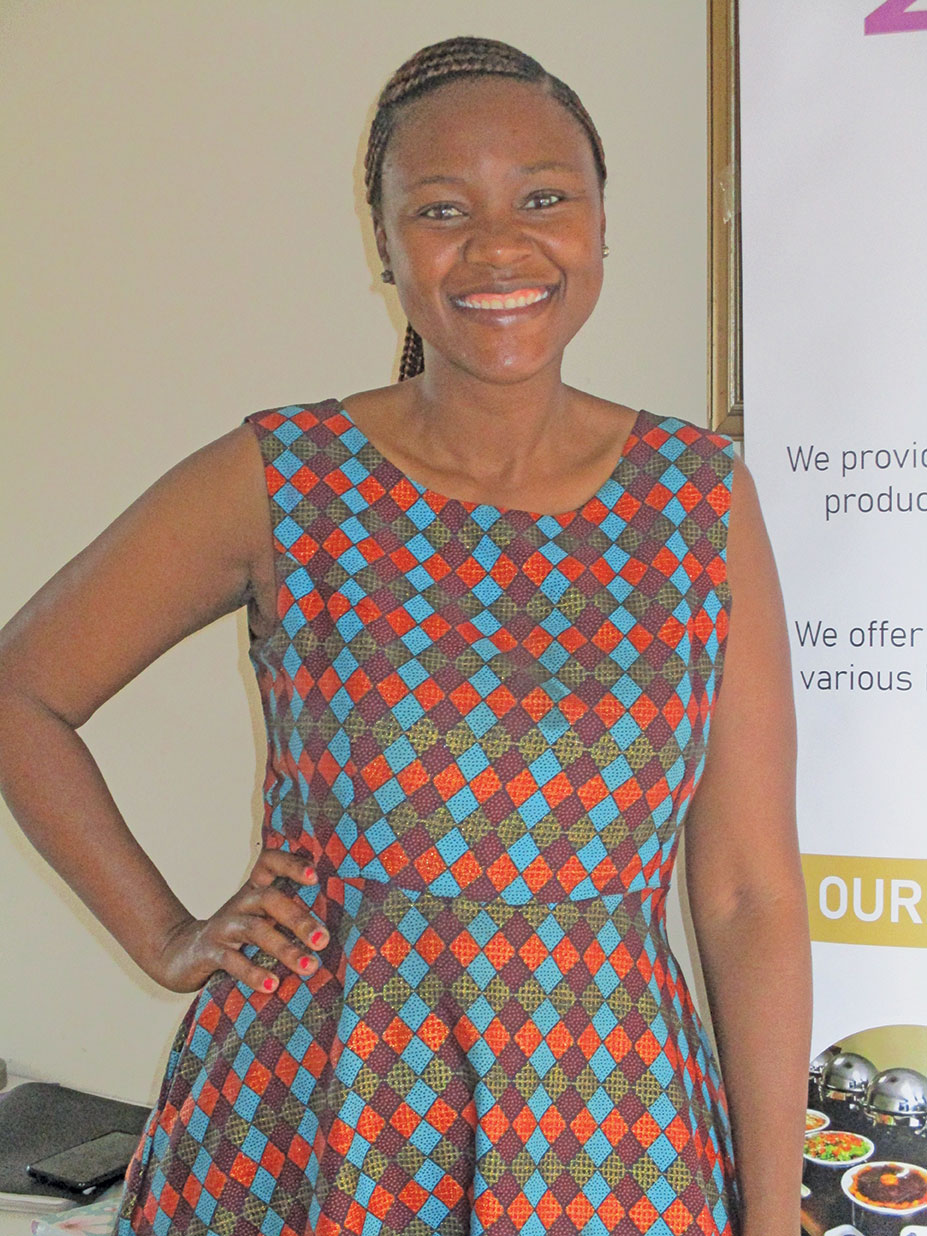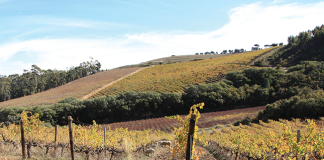
Photo: Susan Marais
If you are passionate about your business, you will thrive. Being in business must involve more than growing your bank account.
This is the belief of Mmule Matlala, CEO and founder of ZDF Matlala Holdings, a diversified food-production company.
“I’ve always enjoyed cooking food, and after school I wanted to go to a culinary school,” recalls Matlala.

However, she opted to put her dreams aside for a “sensible” B. Tech degree in civil engineering, which she obtained from the Tshwane University of Technology. This is also where she met her now husband, Blessing.
After graduating in 2008, the couple obtained positions within Transnet, and seemed set for long careers in engineering. Within a few years, however, frustration had set in. Matlala found that her real passion still lay with food and cooking, and their hectic lifestyle was troubling her. At the time, she was working in Pretoria and her husband in Kempton Park.
“We almost always saw each other in passing. When I was coming home from my shift, Blessing was usually leaving for his.”
In 2016, by which stage their eldest child was two years old, she decided to prioritise her family’s emotional health and happiness over their generous incomes.
“I was done pleasing others, so I decided to resign and pursue my passion for cooking,” she recalls.
At the time, she was already cooking on Saturdays and catering at functions. “This helped, as I had a thriving business before I resigned. I finally registered the business in 2017.”
Three months after Matlala resigned, Blessing also left his job to join ZDF on a part-time basis as its operations manager. Today, his time is divided between ZDF and other business interests.
For the first few years, the company consisted solely of ZDF Foods Catering, and the Matlalas steadily built up a good reputation. Business was booming. And then COVID-19 hit.
An abrupt halt – and a fresh start
“Everything stopped and we suffered great losses,” Matlala recalls. “No weddings took place. No parties. Nothing.”
The couple’s first decision was to return their Pretoria house to the bank.
“We gave it back voluntarily before we forfeited our mortgage.”
They then relocated to Matlala’s parents’ home in Ga-Rankuwa, 37km north-east of Pretoria. And it was here that they sat down, rethought their business model, and started afresh.
“We relaunched our business in Ga-Rankuwa because I could leverage the fact that clients had known me since childhood,” says Matlala. “We also realised that the crisis was a great growth opportunity for expansion.”
She also decided to capitalise on the fact that her father, Hellon Modiselle, was an avid backyard vegetable farmer passionate about growing chillies.
“I decided to honour him by developing a chilli relish, which was made from the fruit of the 12 chilli trees that he had at the time.”
Matlala also began picking chillies, and this stimulated growth in the plants.
“We suddenly had more chillies than before and wanted to preserve them for later use.”
To do this, they bought a small dehydrator for the business, and found it ideal. “It’s incredibly cost-effective. We were able to make three to four batches of relish with fewer chillies than before.”
This boost in production effectively gave birth to ZDF Foods and ZDF Agri, allowing the couple to tap further into agricultural production and agro-processing.
With the help of the Small Enterprise Development Agency, Matlala had their chilli relish scientifically analysed by the South African Bureau of Standards, as well as the Bakery & Food Technology Incubator.
“The relish is market-ready and barcoded, and we’re in discussions with various retailers,” she says. “Our relish has a shelf life of two years, which was a supermarket requirement before they would consider selling the product.”
The Matlalas are also looking at developing a preservative-free version of the relish.
“If we can do this, we’ll be able to sell our relish at health stores as well.
“We’re also producing chilli flakes. To make it interesting, we infuse our produce with Himalayan salt and moringa [powder, a nutritional supplement and antioxidant].”
These products are currently being analysed and tested.
Looking for arable land
“We’ve applied to lease land in order to expand production,” says Matlala. “The process is long, but we remain hopeful. In Ga-Rankuwa, there are many areas that can be utilised for agricultural purposes because of the rich clay soil. However, the areas are now used for residential purposes, and some have become dumping sites.”
What upsets Matlala even more is the fact that a piece of land they had specifically earmarked for production is on the point of becoming a dumping site.
“We’re now in the process of starting an adopt-a-spot project,” she says. “The idea is to develop a sort of a peace garden where people can come and work or simply harvest some vegetables for themselves.”
This, they hope, will help to build their community. “It’s really heartbreaking to see a woman with a baby rummaging through a rubbish bin. People are struggling and we need to do our bit to try and alleviate their pain.”
Education is key
Matlala says she grabs every opportunity to attend courses, and encourages other growers to do so as well. “There are many valuable courses that farmers can attend for free. Knowledge truly empowers.”
For her, one of the most useful initiatives was Standard Bank’s Basali Development Programme, a year-long course intended to help develop and grow black-women-owned businesses across various industries.
“It was such a lovely experience, because everything was relevant. There’s a massive difference between being employed and being an entrepreneur,” says Matlala.
Modiselle has also been an outstanding mentor to his daughter.
“Besides the lessons he’s teaching me, he also makes a lot of notes. That way, I’ll be able to continue with the farming business even after he’s no longer involved.”
One of the key agricultural lessons that Matlala has learnt from her father is that everything can be useful. “Even a spoilt vegetable can be used as compost,” she says.
Load-shedding woes
Unfortunately, all the education and mentoring in the world cannot act as a buffer against South Africa’s everyday realities, such as load-shedding.
Matlala caters every day from Monday to Thursday for employees of the online trading platform Flash Mobile Vending, which is around 90km away.
“The deliveries are scheduled for 12.30pm, so it’s a crisis if we have load-shedding in the morning,” says Matlala.
She is also unable to buy in bulk and plan well in advance, as load-shedding makes it impossible to keep too much stock in a fridge or freezer.
Matlala believes that profit should only be an additional reason for starting a business.
“One needs to focus on the betterment of people’s lives. That has kept me going.”
Plans for the new year include the launch of a weight-loss range, a project close to Matlala’s heart.
“People in townships often eat [poorly]. That’s why so many of our people struggle with chronic illnesses. I want to help people eat healthier food.”
At one stage, Matlala herself struggled with her weight, and both of her children suffer from severe allergies.
“Being conscious of what we ate helped our family alleviate most of our ailments and we eventually lost weight in the process. It’s a confidence booster when you’re healthy. I’ve experienced this, and would like to share it with others.”
Matlala has already applied this principle to her chilli relish recipe: it is fat-free and contains little sugar or carbohydrates, enabling consumers to enhance their meals without compromising on their nutrition and health.
Email Mmule Matlala at [email protected].











